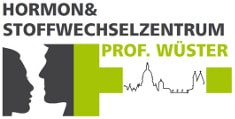Calcium is one of the most important components and building blocks of bone. It is essential in osteoporosis therapy for bone formation. The normal requirement of calcium is 1,000 mg per day. Adolescents, pregnant women and the elderly need up to 1,500 mg of calcium per day. Calcium is best supplied through the diet. This includes calcium-rich foods such as cheese, cottage cheese, yogurt or other dairy products. Other very well tolerated suppliers are mineral waters. Calcium-enriched foods (e.g., orange juices) are also available. Special calcium tablets or powders are not recommended. They can cause flatulence, bloating or abdominal discomfort. Dangers of calcium therapy are rare. Only people with parathyroid disease in the sense of primary hyperparathyroidism should be more cautious. Request information material now
Health tips
Good to know
Vitamin D is not a vitamin in the true sense of the word. It is formed in the skin with the support of the sun (UV rays). However, this decreases significantly with age. Many people also take light protection factors with cosmetics, which inhibit normal vitamin D formation via the skin. Thus, a large part of the population is deficient even in summer. Whether the vitamin D level is adequate or not is determined by the doctor. For the basic therapy of osteoporosis, an adequate vitamin D level in the blood is very important. The bone needs sufficient vitamin D. In addition, the vitamin D hormone regulates calcium absorption through the intestines; people with vitamin D deficiency do not absorb enough calcium through the intestines. Vitamin D also affects muscle strength and has a positive influence on the immune system. It can be supplied to the body via tablets, drops or injections and through UVB radiation from the sun. Request information material now
Many people with osteoporosis are catabolic, meaning they have a negative metabolic balance of their diet. This is often reflected in low body weight and sometimes in low protein levels in the blood. It is therefore important to ensure an adequate protein intake. This can be done with food or with protein supplements. In general, any protein powder that is used in sports, for example, will also do good for affected older people. Protein supplementation does not lead to an impairment of kidney function. Request information material now
Calcium is known for its importance in building strong bones (see above). However, bone growth is a multi-faceted process. Studies have shown that calcium supplementation alone is not sufficient for building healthy bones and slowing the signs of aging. Magnesium, for example, is an important mineral for the body, assisting in hundreds of enzyme reactions. Vitamin D supports calcium absorption (see above) and helps in the production of osteoblasts (bone-forming cells). Vitamin K2 modulates osteoblast gene expression and contributes to calcium transport by activating two calcium-binding proteins, osteocalcin and matrix GLA protein. Request information material now
A good bone wants to be loaded. The pull of the muscles leads to a stimulation of osteoblasts (bone-forming cells). From this point of view, a daily muscle building workout is essential. What is meant is a daily one-hour whole-body workout that targets all muscle groups in the body. As a rule, this can be done by oneself at home in the living room using a simple theraband. Appropriate instructions can be given by physiotherapists to each person individually. Only a bone that is loaded by muscle traction and sufficient weight can also respond well to osteoporosis drug therapy. People with vertebral fractures from osteoporosis should not push themselves beyond the pain threshold and should not do exercises that are too stressful for the spine. Request information material now

